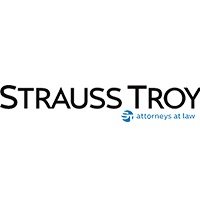Best Trusts Lawyers in Covington
Share your needs with us, get contacted by law firms.
Free. Takes 2 min.
List of the best lawyers in Covington, United States
About Trusts Law in Covington, United States
Trusts law in Covington, United States concerns the creation and maintenance of legal structures called trusts. A Trust is a legal arrangement where a person (the Trustee) holds and manages assets for the benefit of others (Beneficiaries). Trusts are often used for estate planning, tax planning, and asset protection; controlling and protecting family assets; and provision for children and dependents. Trusts law in Covington, like the rest of the United States, follows the principles of common law.
Why You May Need a Lawyer
You might need a lawyer in several situations regarding trusts law. Such situations include drafting a trust, modifying or dissolving a trust, understanding trust taxation, contesting a trust, or if you are a trustee, managing the trust and the legal duties associated with it. A lawyer with expertise in trusts law can help you understand your rights, responsibilities, and implications of all actions related to trusts.
Local Laws Overview
Trusts in Covington, U.S., are governed by both federal law and state laws of Kentucky. The primary law is the Kentucky Revised Statutes, specifically chapter 386A - Uniform Trust Code. These laws cover the creation, validity, modification, and termination of trusts, as well as the duties and powers of trustees and rights of beneficiaries. A key feature of Kentucky law is that it allows for the creation of a 'self-settled' asset protection trust, providing significant protection of assets from creditors.
Frequently Asked Questions
1. How do I create a trust?
A trust is created with a written document, called a Trust Agreement, signed by the person creating the trust (the Settlor) and the Trustee. A trust lawyer can help draft this document according to your needs and state laws.
2. Can a trust be changed or revoked?
Whether a trust can be changed or revoked depends on whether it’s revocable or irrevocable. A revocable trust can be altered or terminated by the settlor during their lifetime. An irrevocable trust, once established, generally cannot be changed or revoked without court approval or the consent of all parties involved.
3. What are the responsibilities of a trustee?
A trustee is legally responsible for managing the trust's assets in the best interest of the beneficiaries. This includes following the terms of the trust document, investing assets prudently, avoiding conflicts of interest, and keeping accurate records.
4. Who can serve as a trustee?
Anyone who is legally competent to handle their own affairs can serve as a trustee, including individuals, banks, and trust companies. However, the selection should be made carefully, considering the complexity and demands of the role.
5. What are the tax implications of a trust?
The tax implications of a trust depend on its structure. Some trusts are subject to estate tax, others to income tax. In certain cases, a trust can help avoid or minimize taxes. An experienced trusts lawyer can provide the necessary guidance.
Additional Resources
For more information on trusts law in Covington, U.S., consider resources like the American Bar Association, Kentucky State Law Library, and local legal aid services. Additionally, the Internal Revenue Service provides information on the tax aspects of trusts.
Next Steps
If you need legal assistance with trusts in Covington, you should consider consulting with a local lawyer specializing in trusts and estate planning. A knowledgeable legal professional can guide you through the process, ensuring your trust conforms to all applicable laws and truly serves your intentions and beneficiary's needs.
Lawzana helps you find the best lawyers and law firms in Covington through a curated and pre-screened list of qualified legal professionals. Our platform offers rankings and detailed profiles of attorneys and law firms, allowing you to compare based on practice areas, including Trusts, experience, and client feedback.
Each profile includes a description of the firm's areas of practice, client reviews, team members and partners, year of establishment, spoken languages, office locations, contact information, social media presence, and any published articles or resources. Most firms on our platform speak English and are experienced in both local and international legal matters.
Get a quote from top-rated law firms in Covington, United States — quickly, securely, and without unnecessary hassle.
Disclaimer:
The information provided on this page is for general informational purposes only and does not constitute legal advice. While we strive to ensure the accuracy and relevance of the content, legal information may change over time, and interpretations of the law can vary. You should always consult with a qualified legal professional for advice specific to your situation.
We disclaim all liability for actions taken or not taken based on the content of this page. If you believe any information is incorrect or outdated, please contact us, and we will review and update it where appropriate.








